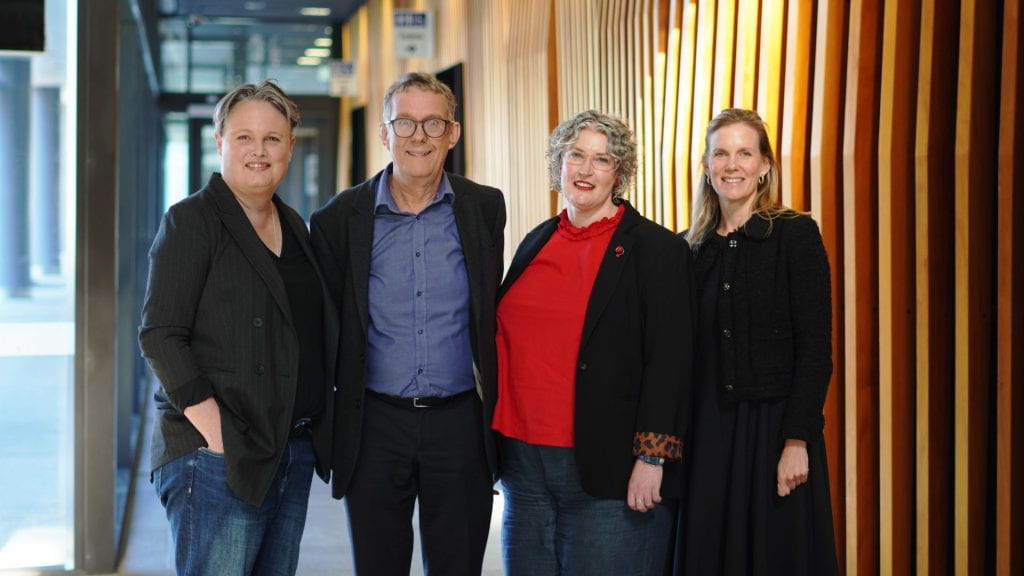Public Policy Institute
Policy CommonsPhilippine Foreign Policy in an Era of Great Power Competition
Talk by academic and Philippine foreign policy expert Richard Heydarian Richard will be speaking about the Philippines' foreign policy under the Marcos administration and the challenges and opportunities for international engagement, including relations with New...
With ACT and NZ First promising to overhaul Pharmac, what’s in store for publicly funded medicines?
By Paula Lorgelly Professor of Health Economics, University of Auckland Never before has Pharmac – the government’s medicine procurement agency and decision maker – featured so prominently in an election. Many parties are pledging more funding, but two are...
The prospect of City Deals in New Zealand
By David Waite, University of Glasgow The Auckland Mayor’s recent manifesto (“Manifesto for Auckland”), which seeks new arrangements with central government, hinges on a call for greater autonomy. The possibility of a City Deal was noted in the manifesto, and this...
Election 2023: Health Policies under the Microscope
What lies in store for our health sector after the 14 October election? We have assembled a panel of speakers with diverse expertise and perspectives on Aotearoa New Zealand’s health system to examine and discuss health policy ideas and initiatives proposed by...
Sustainability is often an afterthought in space exploration – that needs to change as the industry grows
By Priyanka Dhopade, Carolle Varughese, Lena Henry, Sarah Hendrica Bickerton, and Te Kahuratai Moko-Painting Aotearoa New Zealand is the latest country to enter the expanding and competitive international space market. In the aerospace strategy and national space...
Metaphors can be useful but they have dark side
By Peter Adams ‘Mental illness’ is no longer seen as a metaphor but a taken-for-granted truth. This view acts as a barrier, preventing alternative understandings and interventions being taken seriously Opinion: I often reflect on the wide range of positive...
Not all rent control policies are the same – the Green Party proposal deserves an open-minded debate
By Tom Baker The ink was barely dry on the Green Party’s recently unveiled “Pledge to Renters” – which included annual rent increase limits, a rental warrant of fitness and a national register of landlords – before others were consigning it to the policy dustbin....
As new Aussie citizenship rules kick in, the ‘fair go’ finally returns to trans-Tasman relations
By Jennifer Curtin In 1865, my Irish-born great great grandparents travelled from Dunedin to Sydney to marry in St Mary’s Cathedral. Some 63 years later, my grandmother Mary also travelled to Australia to marry my grandfather Ted. He was a clerk with the Bank of...
Policy Briefing: Building a just research system together
By Aisling Rayne, Hitaua Arahanga-Doyle, Troy Baisden, Bethany Cox, Murray Cox, Catherine Febria, Stephanie Galla, Shaun Hendy, Kirsten Locke, Anna Matheson, Aleksandra Pawlik, Tom Roa, Emma Sharp, Tammy Steeves, Leilani Walker, Krushil Watene, Priscilla Wehi Te...
NZ’s housing market drives inequality – why not just tax houses like any other income?
By Susan St John The Green Party made waves recently when it proposed to tax net wealth over NZ$2 million for individuals and $4 million for couples. As part of a broad range of actions, the policy aims to “end poverty”. Reactions ranged from endorsement to...
Election 2023: Health Policies under the Microscope
What lies in store for our health sector after the 14 October election? We have assembled a...
Sustainability is often an afterthought in space exploration – that needs to change as the industry grows
By Priyanka Dhopade, Carolle Varughese, Lena Henry, Sarah Hendrica Bickerton, and Te Kahuratai...
Metaphors can be useful but they have dark side
By Peter Adams ‘Mental illness’ is no longer seen as a metaphor but a taken-for-granted...
Not all rent control policies are the same – the Green Party proposal deserves an open-minded debate
By Tom Baker The ink was barely dry on the Green Party’s recently unveiled “Pledge to Renters”...
Latest Events
Election 2023: Health Policies under the Microscope
What lies in store for our health sector after the 14 October election? We have assembled a panel of speakers with diverse expertise and perspectives on Aotearoa New Zealand’s health system to examine and discuss health policy ideas and initiatives proposed by...










